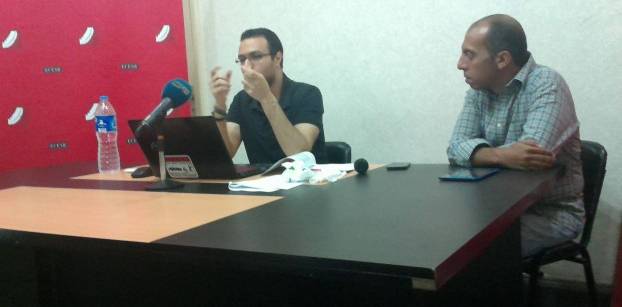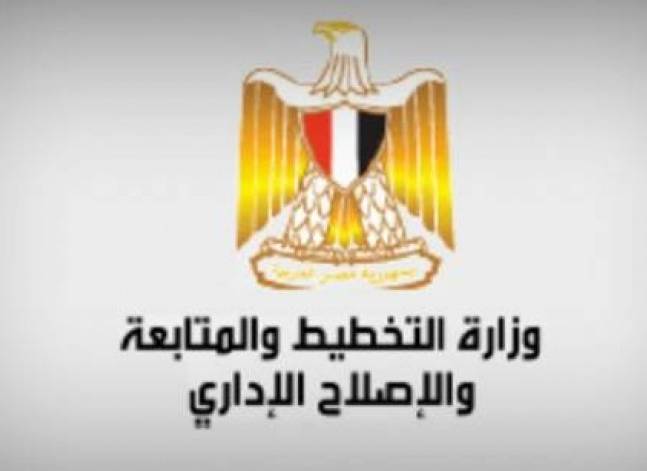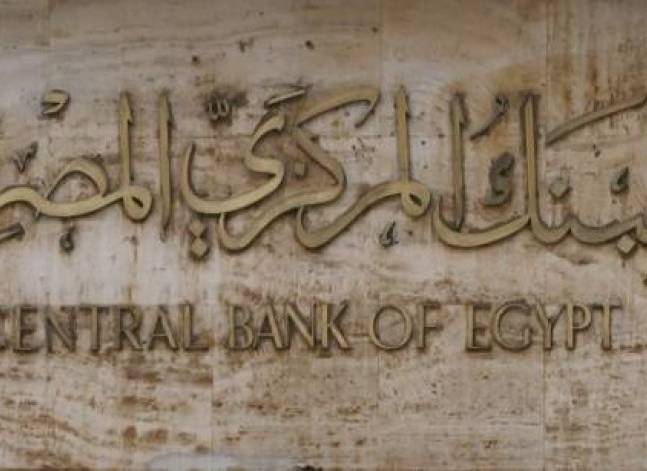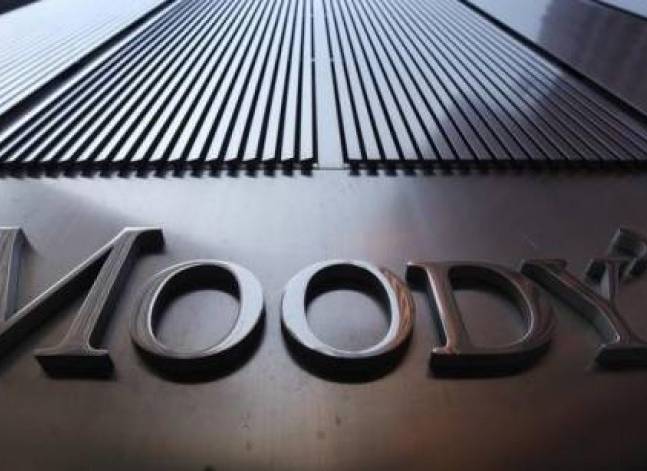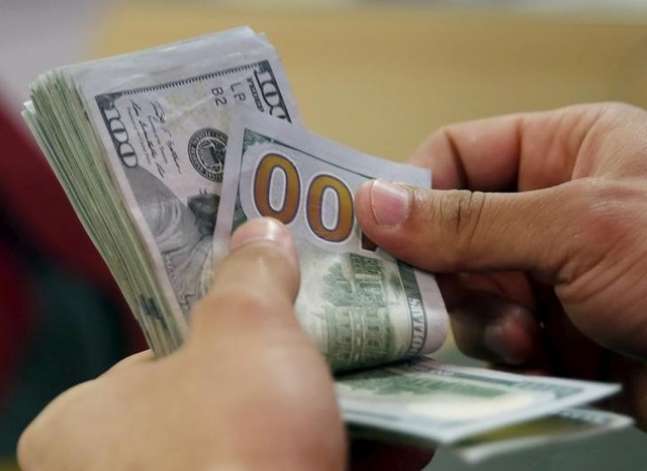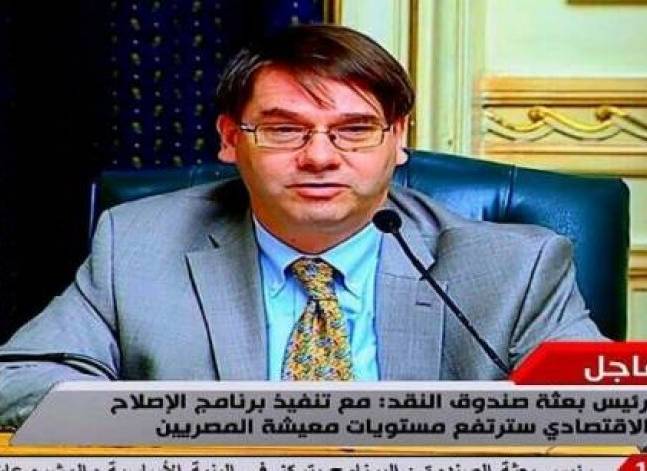Latest NEWS
- Aswat Masriya, the last word
- Roundup of Egypt's press headlines on March 15, 2017
- Roundup of Egypt's press headlines on March 14, 2017
- Former Egyptian President Hosni Mubarak to be released: lawyer
- Roundup of Egypt's press headlines on March 13, 2017
- Egypt's capital set to grow by half a million in 2017
- Egypt's wheat reserves to double with start of harvest -supply min
- Roundup of Egypt's press headlines on March 12, 2017
Egypt gov't 'lacks economic vision' in the face of mounting loans - ECESR
Rsearcher Omar Ghannam and Head of Research Unit Mohamed Gad at a press conference on Sept. 22, 2016 - Facebook photo
CAIRO, Sept. 22 (Aswat Masriya) - As Egypt gears up for its second rescue package from the International Monetary Fund (IMF) in 25 years, researchers and policymakers remain divided on both its necessity and impact.
The Egyptian Center for Economic and Social Rights (ECESR) launched its series of policy papers on Thursday with the first paper tackling the IMF loan and the ailing Egyptian economy.
Egypt's latest resort to the IMF has been widely discussed among scholars, researchers, journalists and the wider public in recent weeks due to its eminent influence on the market and more importantly on the livelihood of Egyptians.
With an external debt currently over $53 billion, Egypt looks to almost double this amount as it negotiates a lump of loans from the World Bank and the African Development Bank and certain countries as part of an overall rescue package.
"We have reached a point where borrowing is necessary, but it should be kept at the lowest possible amount, however the Egyptian government is borrowing excessively," ECESR researcher Omar Ghannam said.
"The state has no economic vision," Ghannam added.
The Egyptian government and the IMF reached a staff-level agreement on Aug. 11 regarding a three-year $12 billion funding facility aimed at cutting the budget deficit and improving the currency market.
The 1991 rescue package
In his paper "From the 1990s until now: the IMF loan and exacerbating the crisis," Ghannam provides a comparative assessment of the rescue package in 1991 and the one currently under negotiation.
From a historical perspective, Ghannam argues that Egypt's 1991 rescue package from the IMF along with other international financial institutions failed to address the economy's structural ills and opted instead for short term relief.
In the late 1980s, Egypt's economic distress was paramount amid regional upheaval during the Second Gulf War and an economic slowdown affected by an oil glut. Problems included increasing trade and fiscal deficits, mounting external debt burdens, weak primary and secondary sectors and over-reliance on volatile hard currency sources.
The rescue package in 1991 was appraised at $562 million and was disbursed on the condition of implementing what is known as the Economic Reform and Structural Adjustment Program (ERSAP).
The ERSAP entailed liberalising foreign trade, removing price controls, adopting a flexible exchange rate system, cutting subsidies especially those allocated to energy as well as pesticides and fertilizers.
The Egyptian government was also required to implement a sales tax and begin a process of "aggressive privatisation," according to the paper.
The results of this endeavor was more negative than positive, Ghannam argues. The trade deficit widened as imports increased and exports decreased, capital expenditure was reduced and unemployment jumped from 9.5 percent to over 11 percent. However, inflation dropped a bit, and poverty rates decreased on the short and medium terms.
On the long term, however, the poverty level reached over 27.8 percent in 2015 compared to 16.7 percent in 2000.
The similarities between the current situation and that of 1991 are evident, Ghannam argues. The same economic structural problems persist, and the IMF adopts more or less the same approach towards countries as it did back in 1991.
However, Noaman Khalid, economist at CI Asset Management, argues that Ghannam has attributed the failures of the past 25 years mostly to the ERSAP, when in fact the government as well as the private sector bear "all the guilt" in Khalid's opinion for the dire economic situation.
Political framework
The Egyptian government has dealt with the current situation using two seemingly contradicting narratives, according to Ghannam. On the one hand, the government reiterates that the IMF loan represents a "stamp of trust" for the Egyptian economy, and on the other hand, it says that the IMF loan is the only viable option at present.
The government is also adopting what Ghannam terms as the "discourse of surprise," referring to current economic problems as "spiraling" and urgent when they have been there since the former rescue package was received.
Khalid said that there was in fact an alternative solution to the current predicament. He explained that Egypt could choose to bear the brunt of the recession for several months and deal with currently held foreign reserves, while in the meantime start planning rigorously.
"The transformation from a recession to a good economy through focusing on local production and exports would definitely require some loans," Khalid said.
Given that Egypt is about to borrow the loan from the IMF anyway, Khalid believes that the country needs to focus on the local front; imposing restriction on imports and boosting exports.
"The IMF loan in and of itself is not the problem, but how the loan will be spent is key," Khalid said, "Governmental policies have been haphazard for quite a while, and this is partly due to the fact that there have been many different governments in the recent period."
Khalid also criticised the government's strategy with regards to investments, stating that development indices as well as profit margins have seen no improvement recently which begs the question why the government is not spending more on education or infrastructure.
Both researchers gave much importance to the system of taxation, as Ghannam argues that it needs an overhaul in order to be fairer through adopting progressive taxation and limiting the dependence on consumption taxes.
Khalid also believed that the faults in the taxation system have been long present, but the government continues to lack vision or strategy.
Egypt approved the value added tax bill late August to replace the sales tax. This is meant to expand the tax base while maintaining the principle of exempting basic goods and services that affect the poor, the cabinet said.

